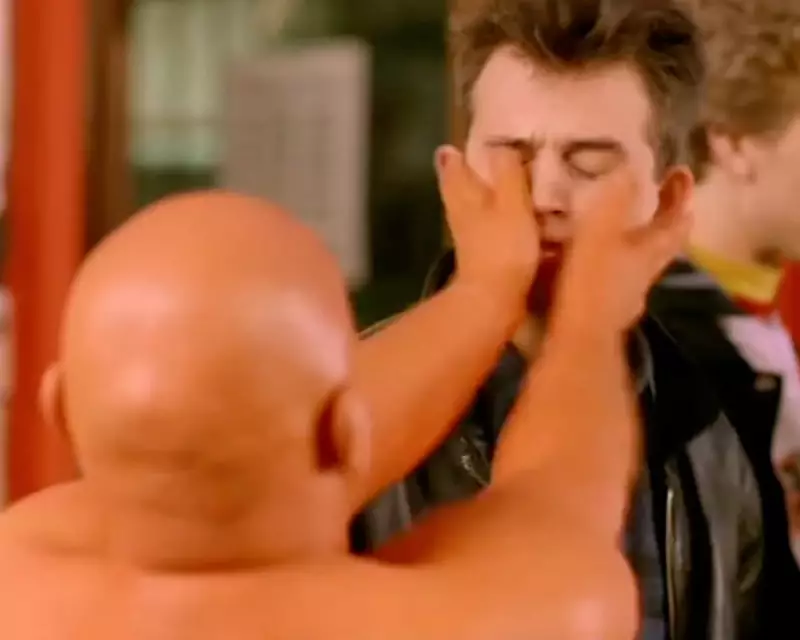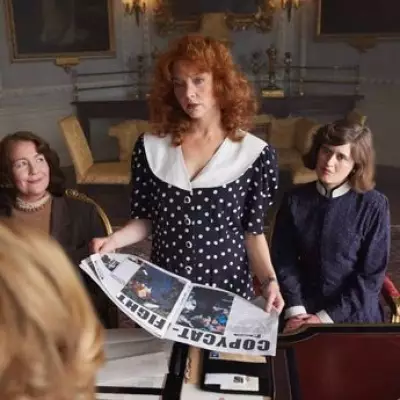
The iconic Tango slap advertisements of the 1990s remain one of Britain's most memorable and controversial advertising campaigns, boosting sales by an impressive 35% while accidentally causing playground injuries across the nation.
The Birth of an Advertising Revolution
Creative duo Trevor Robinson and Al Young, who had previously endured 18 months of unemployment, landed their breakthrough opportunity at Howell Henry advertising agency with a clear mission from Tango: make Coca-Cola fear the little British brand. The beverage company wanted maximum publicity and conversation around their product.
The campaign's central concept evolved from the 'hit of real fruit' promised by the drink. Robinson explained they decided to take this idea literally, transforming the refreshing sensation into a physical impact. In a bold move that challenged conventional advertising wisdom, they flipped the standard cause-and-effect formula where something pleasant follows consumption.
Instead, they created farcical scenarios where something unexpectedly unpleasant occurred, drawing inspiration from classic British comedy. Robinson admitted loving Charlie Chaplin's signature move of kicking people before running away, though the agency initially considered this too aggressive.
Creating the Unforgettable Tango Man
The development of the now-famous orange character underwent several transformations. Initially conceived as simply a overweight figure, art director Al Young suggested making him orange to better represent the drink itself. This evolved into the shirtless orange genie that would become embedded in British popular culture.
The search for the perfect actor led them to Peter Geeves, described as a proper thespian whose distinctive running style - with his stomach thrust forward and head back - secured him the role. Geeves later revealed the character's unexpected career impact, lamenting that casting directors could only see him as the fat orange bloke from the commercials.
The team discovered through camera tests that the initial slaps appeared insufficiently dramatic. They developed the exaggerated technique of stretching arms straight out to the sides, pausing dramatically, then delivering the resounding 'whack' that would become the campaign's signature.
Unexpected Consequences and Lasting Legacy
The advertisement's impact exceeded all expectations, both positive and negative. Sales surged by 35%, prompting Tango to rebrand with black cans capitalising on the campaign's popularity. However, the team hadn't anticipated the wave of copycat slappings in school playgrounds, resulting in complaints from doctors about patients with perforated eardrums.
Voice actor Hugh Dennis, who provided the excited Geordie commentator opposite footballer Ray Wilkins' more laidback delivery, recalled the strange responsibility he felt for the injuries. He noted that every generation experiences dangerous playground crazes, reflecting that clackers had been the hazard during his own schooldays.
The campaign ran successfully for four years during the 1990s before being revived in the 2000s. Dennis described the recording sessions as enormous fun but physically demanding, leaving him unable to speak properly for hours afterward due to the strain on his voice.
The advertisement's cultural penetration became evident to Robinson when he overheard commuters on the tube mimicking the commercial, and later when an entire cinema audience roared with laughter during its screening. The slogan 'You know when you've been Tango'd' entered the British lexicon, still referenced today in contexts ranging from Donald Trump's tan to various unexpected situations.
Music legend Gil Scott-Heron provided the closing voiceover, reportedly giggling throughout the session while declaring the English creators 'crazy'. The campaign's creators acknowledged that such an approach would likely be unacceptable in today's advertising landscape, but cherish their role in creating what has become a cult classic of British advertising history.






